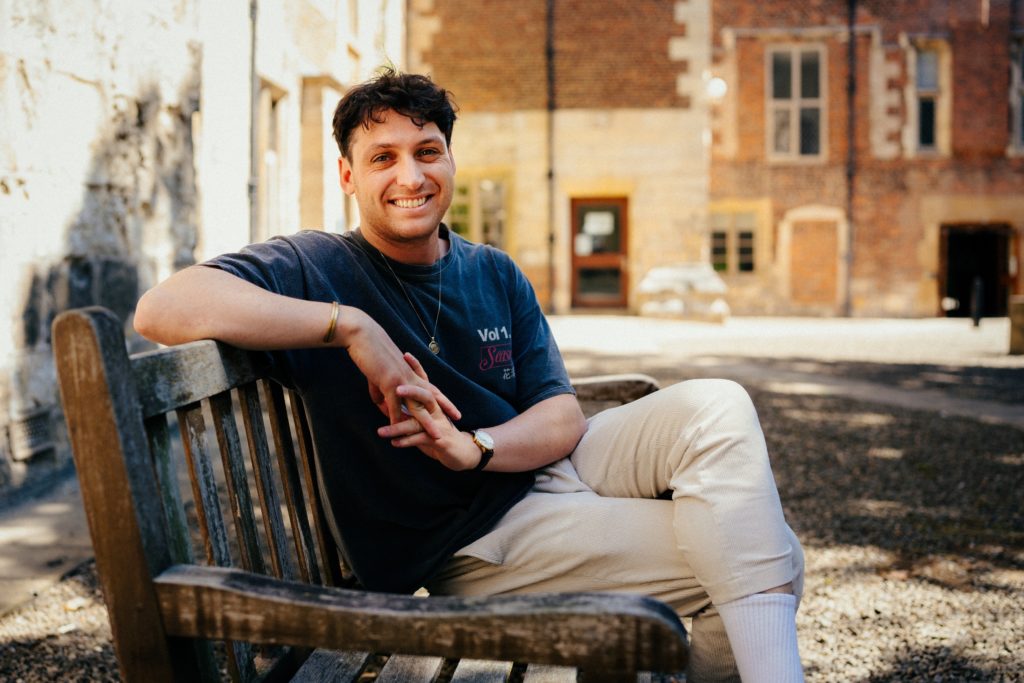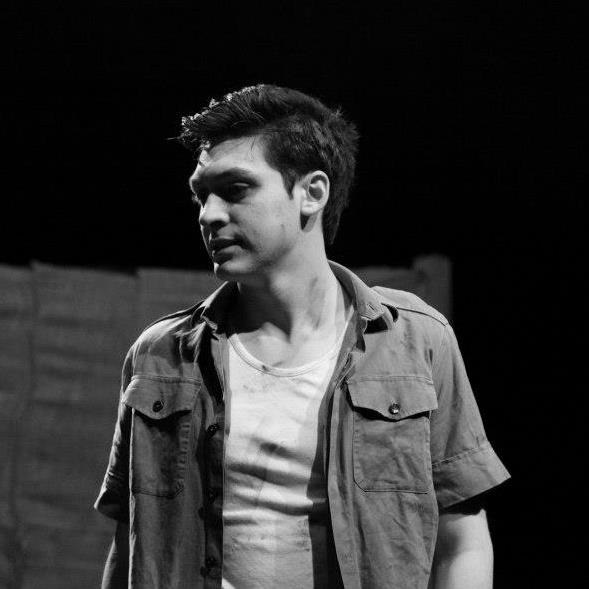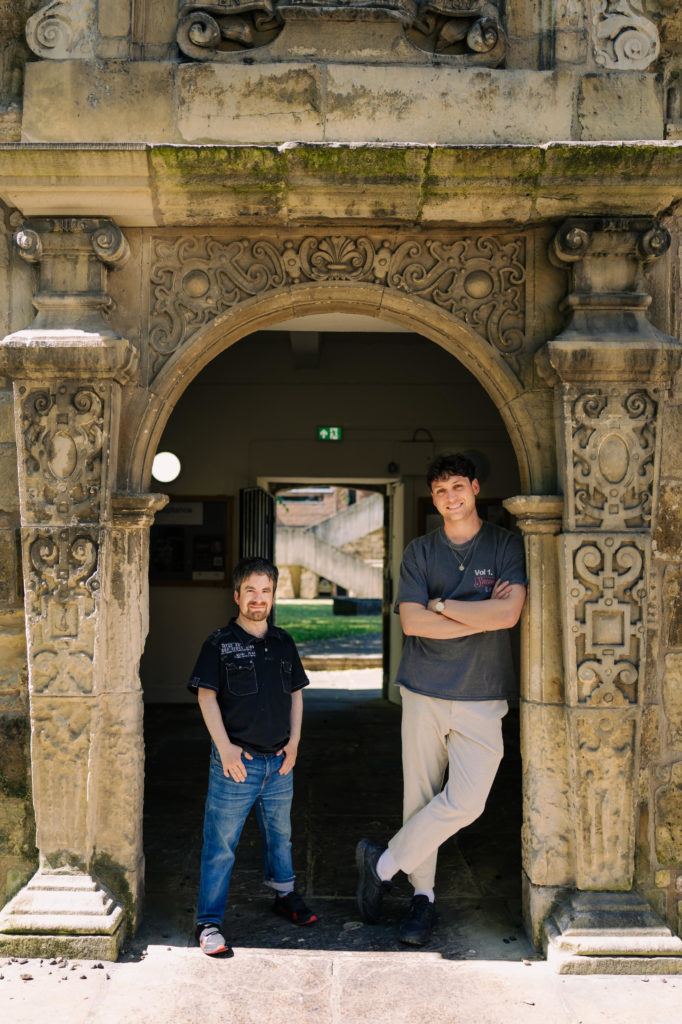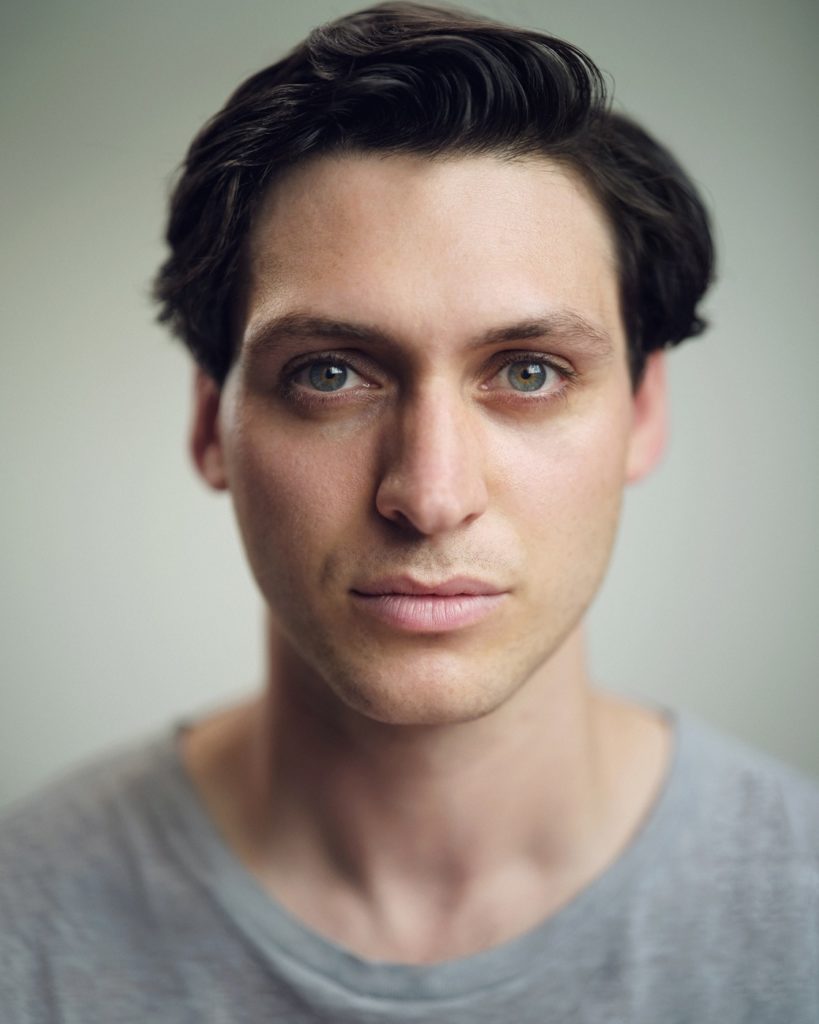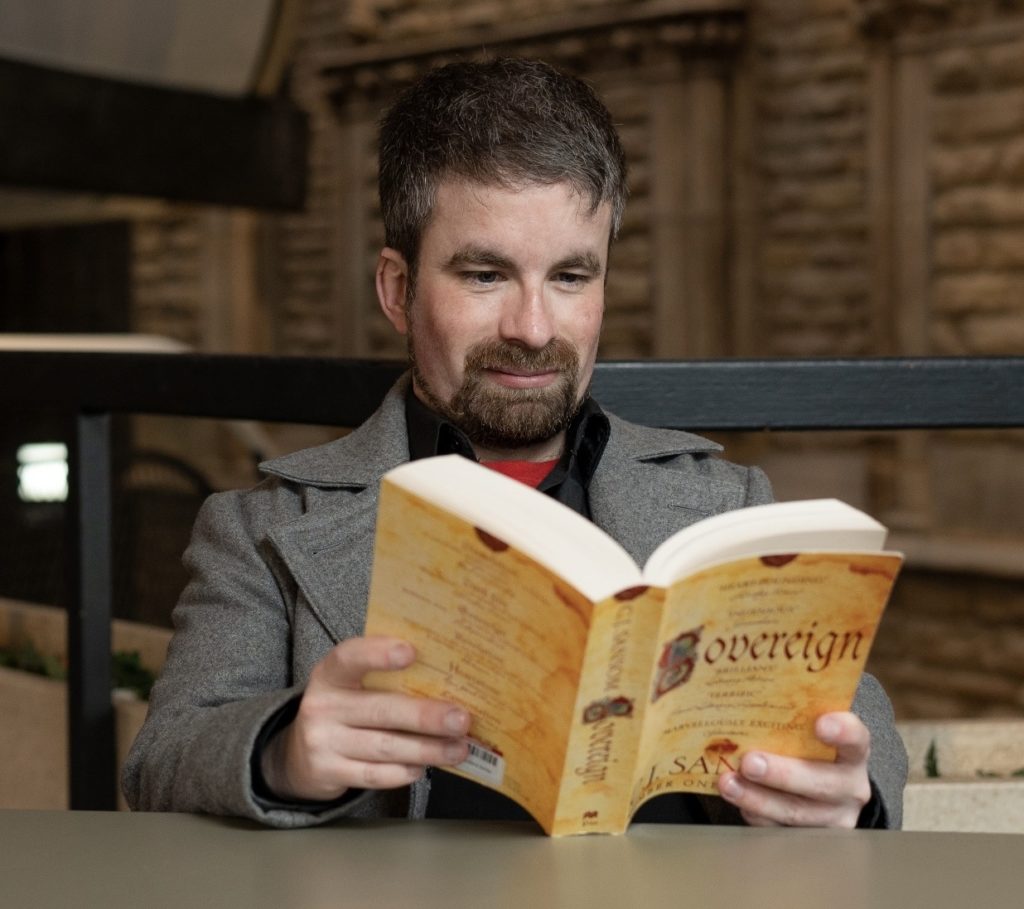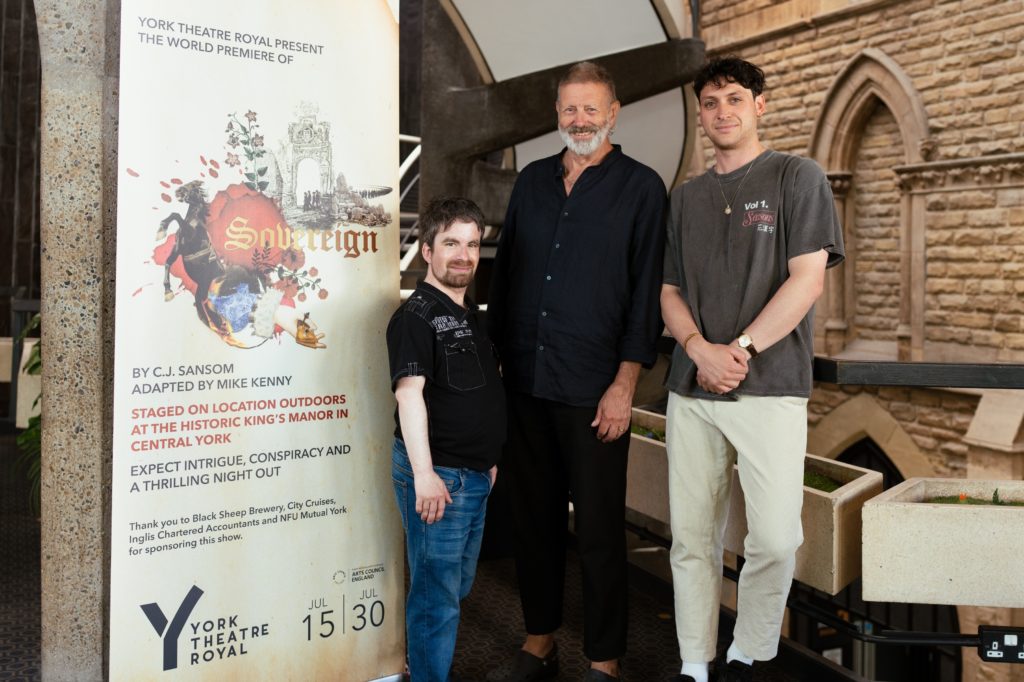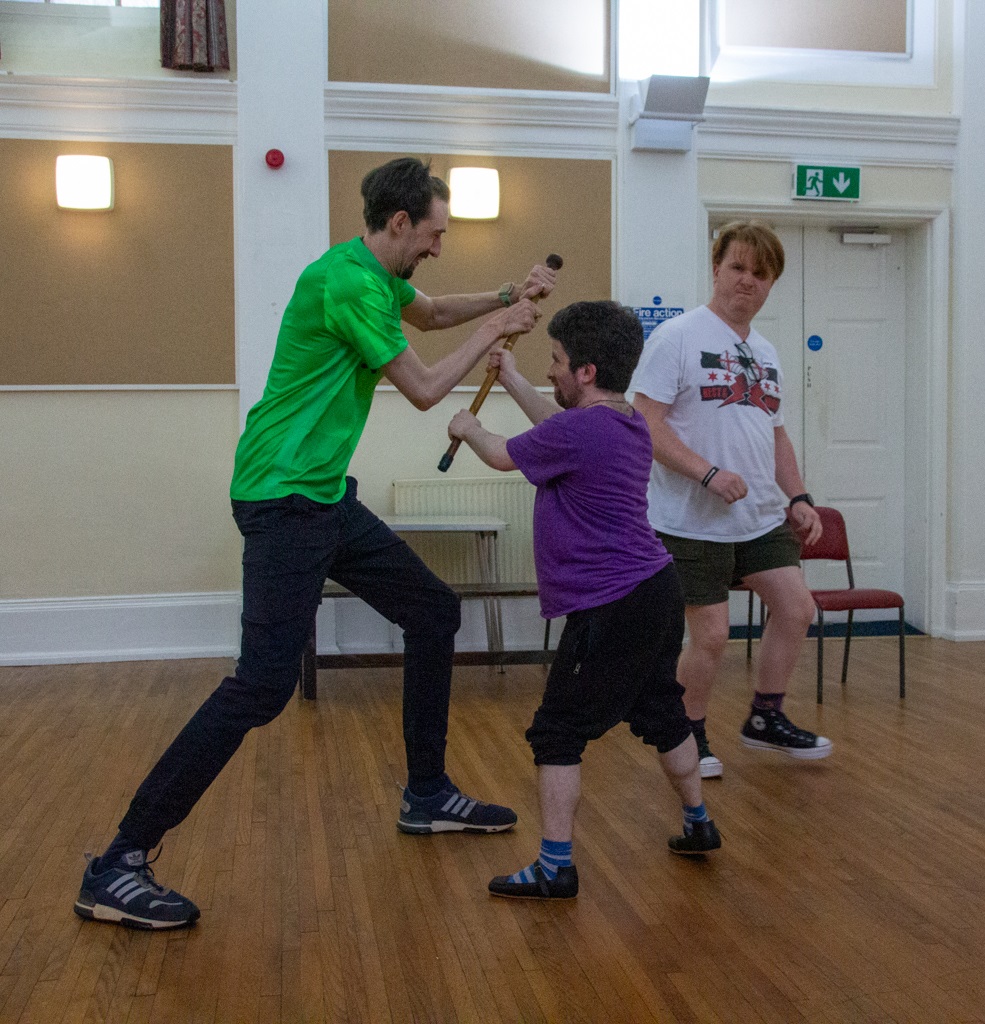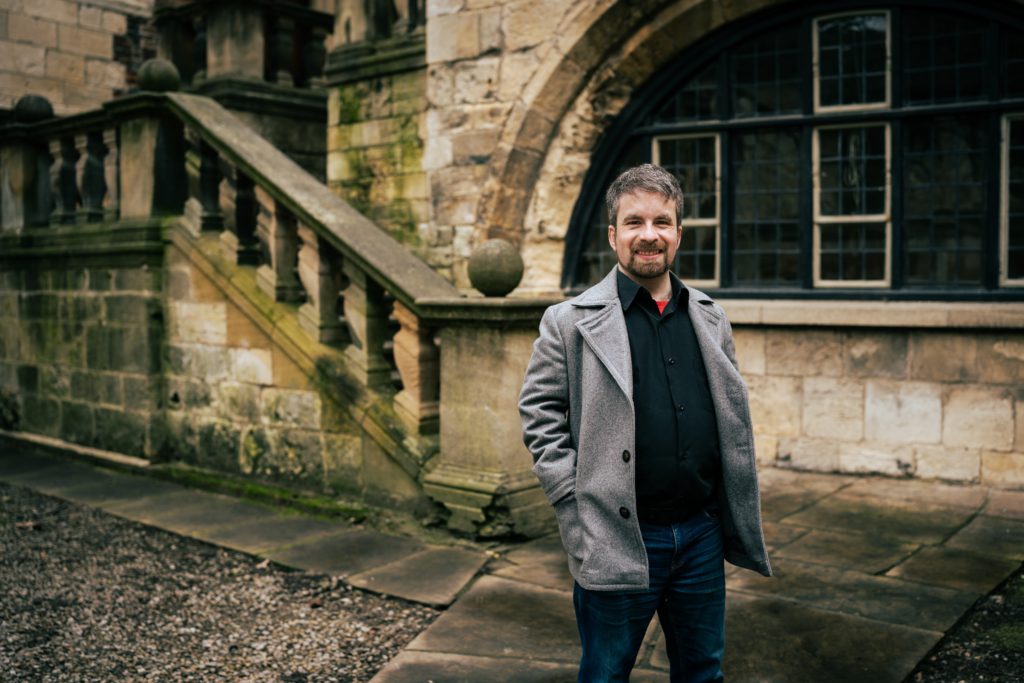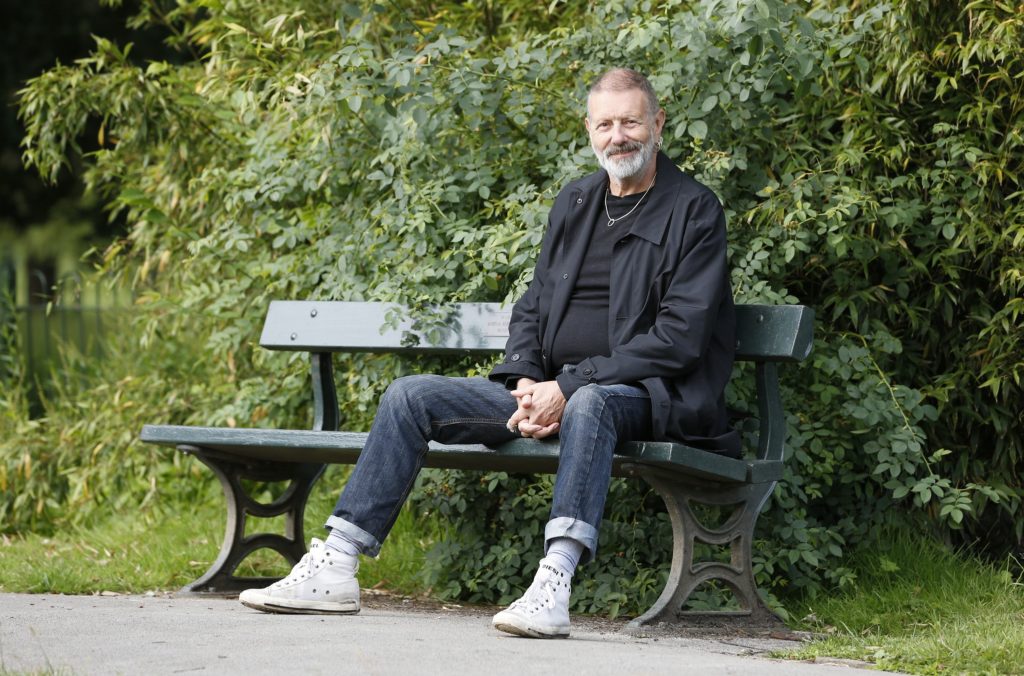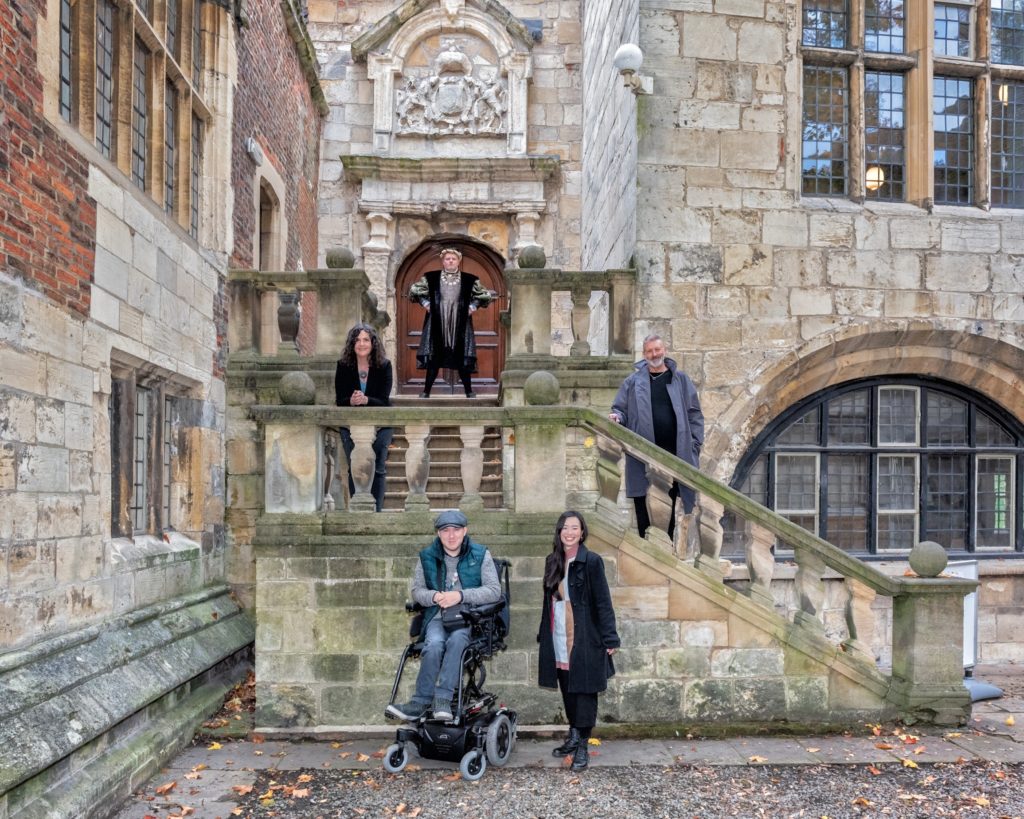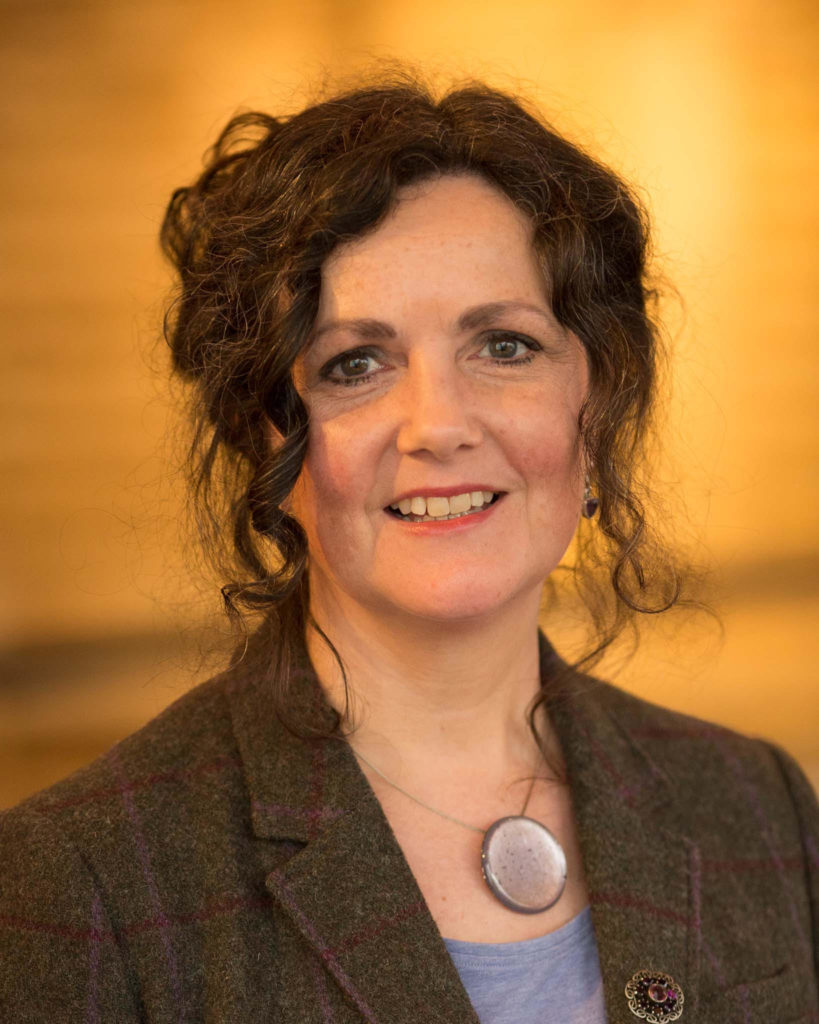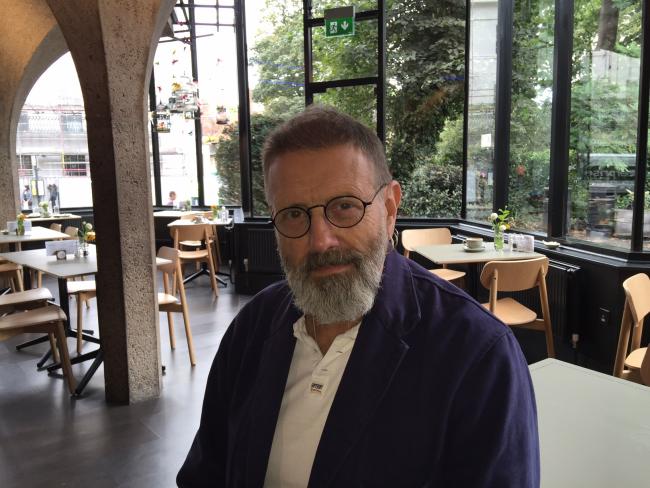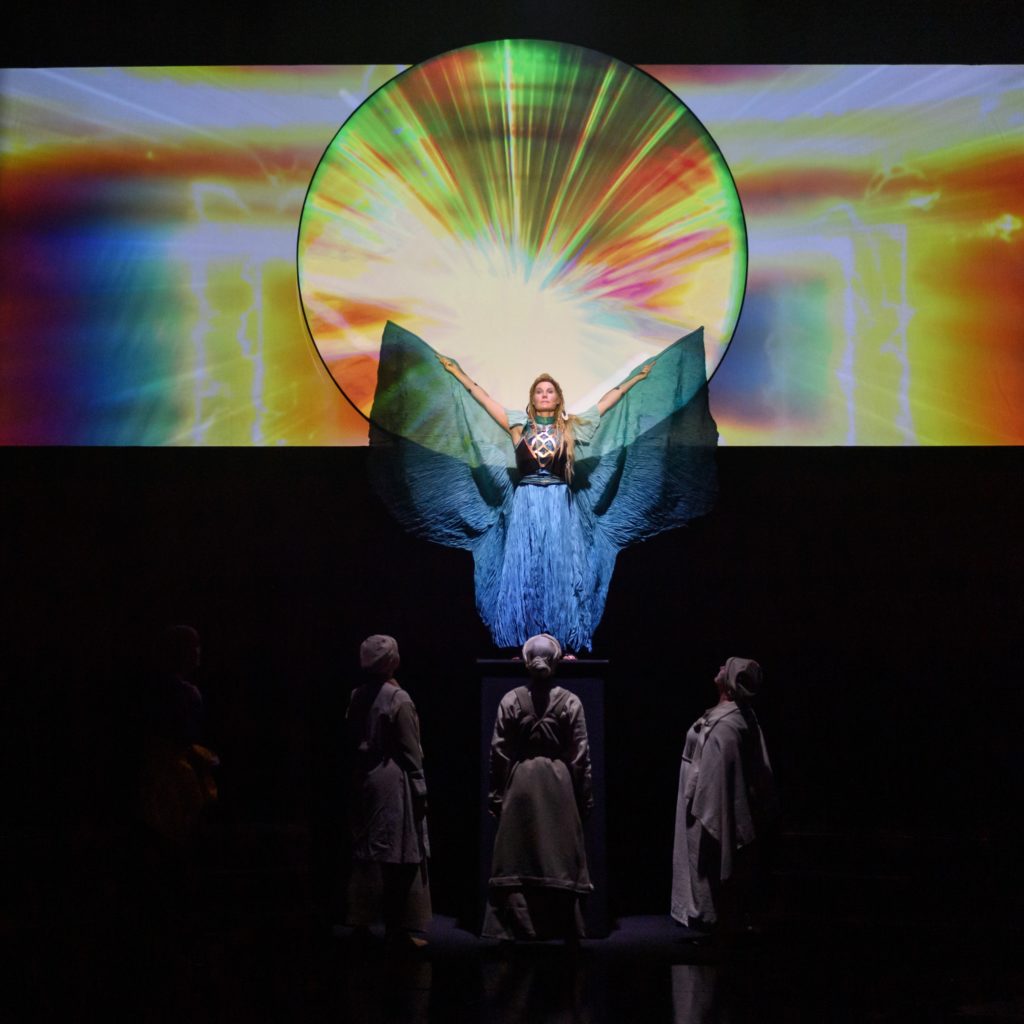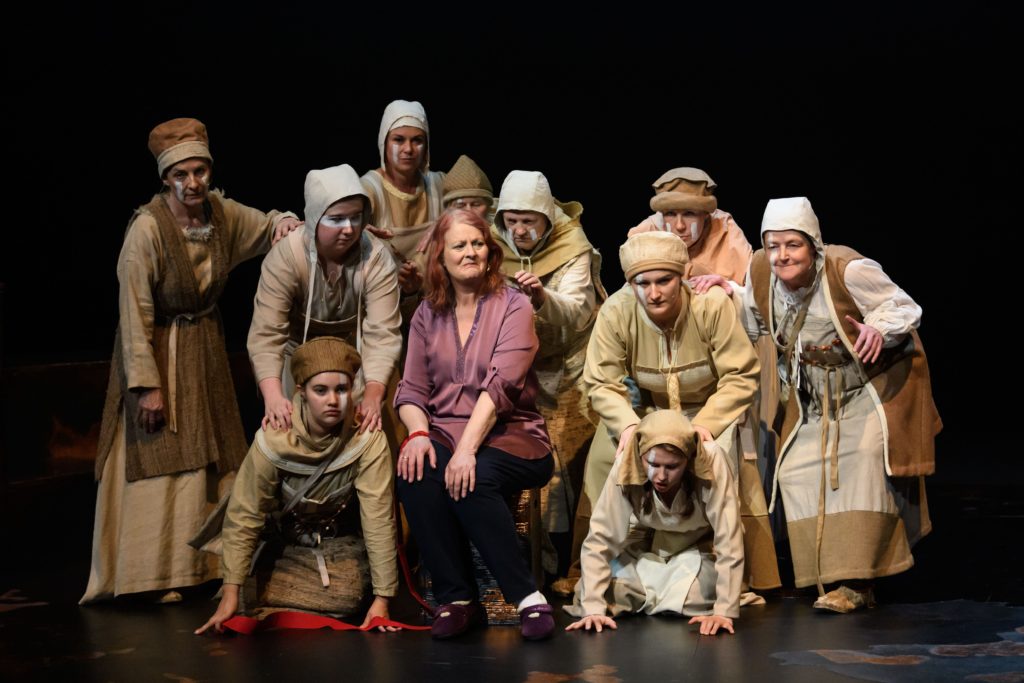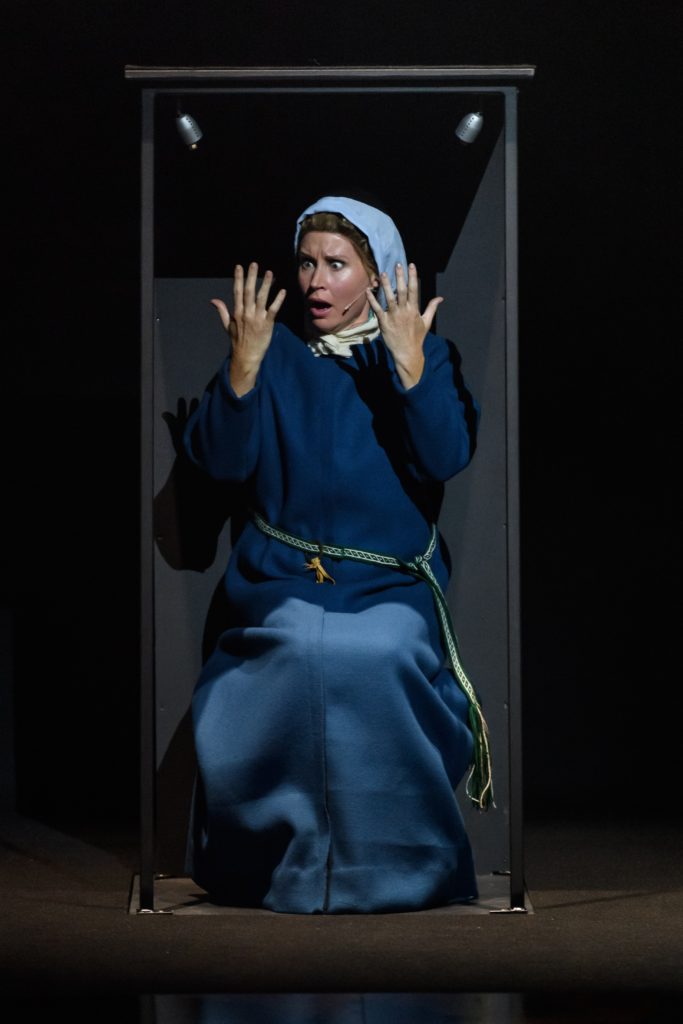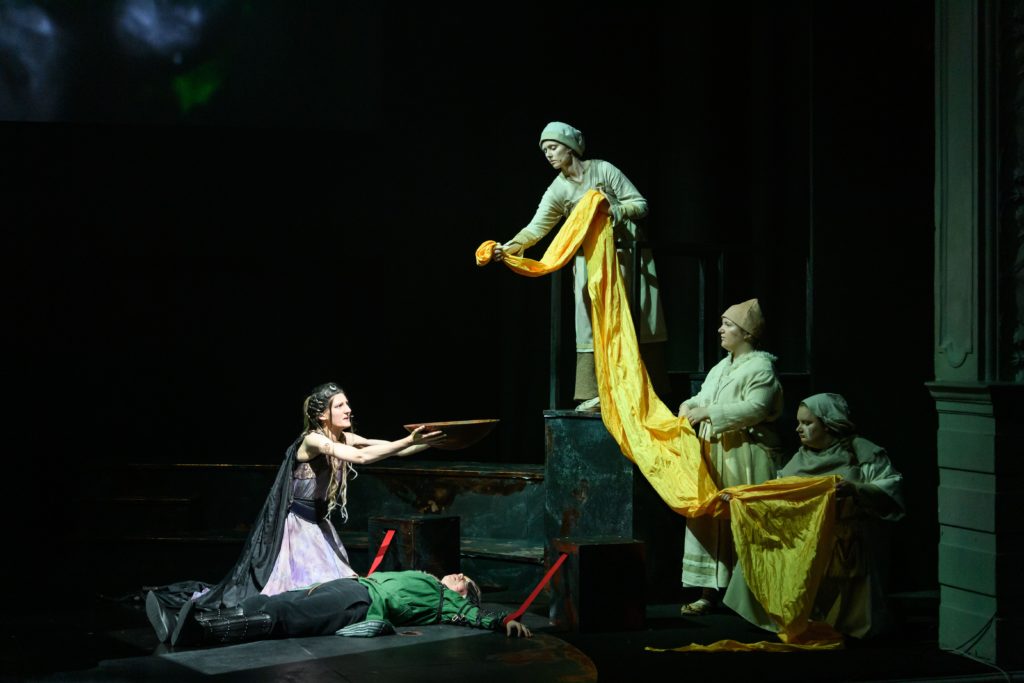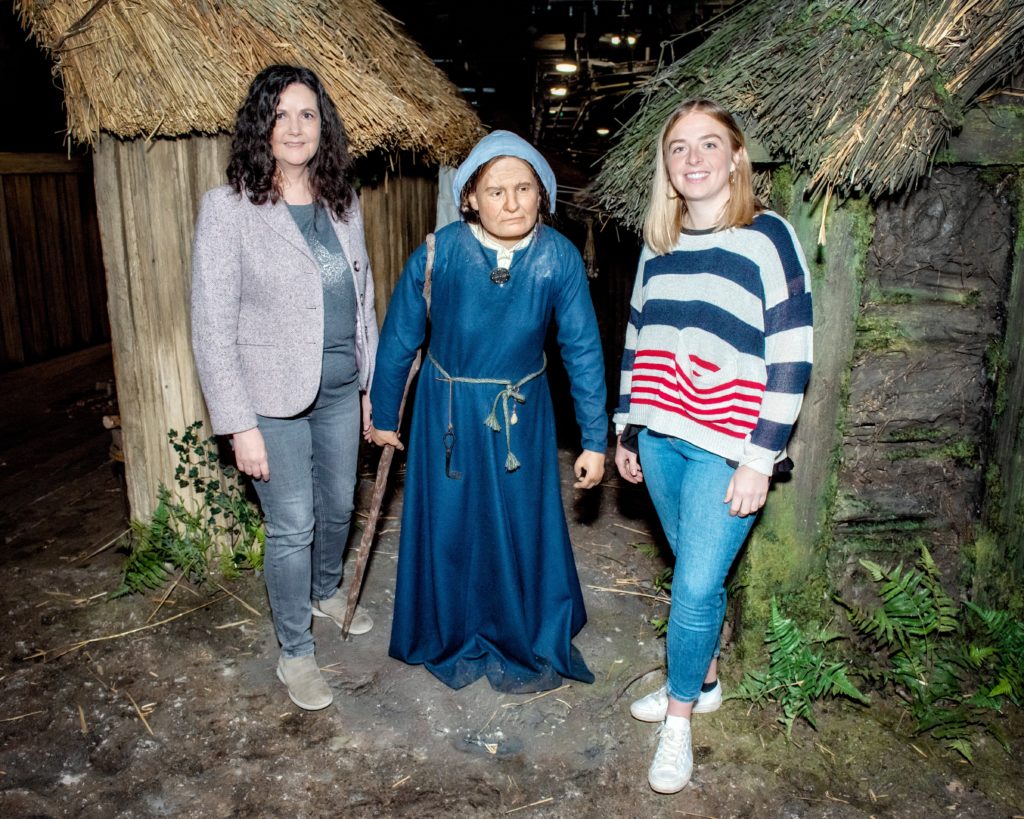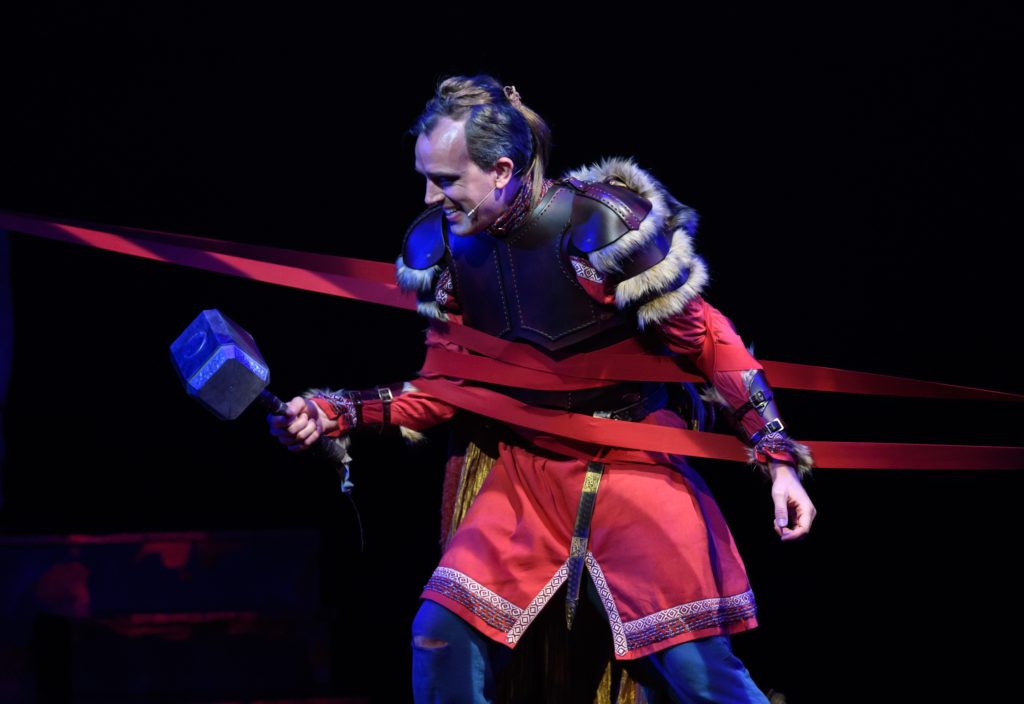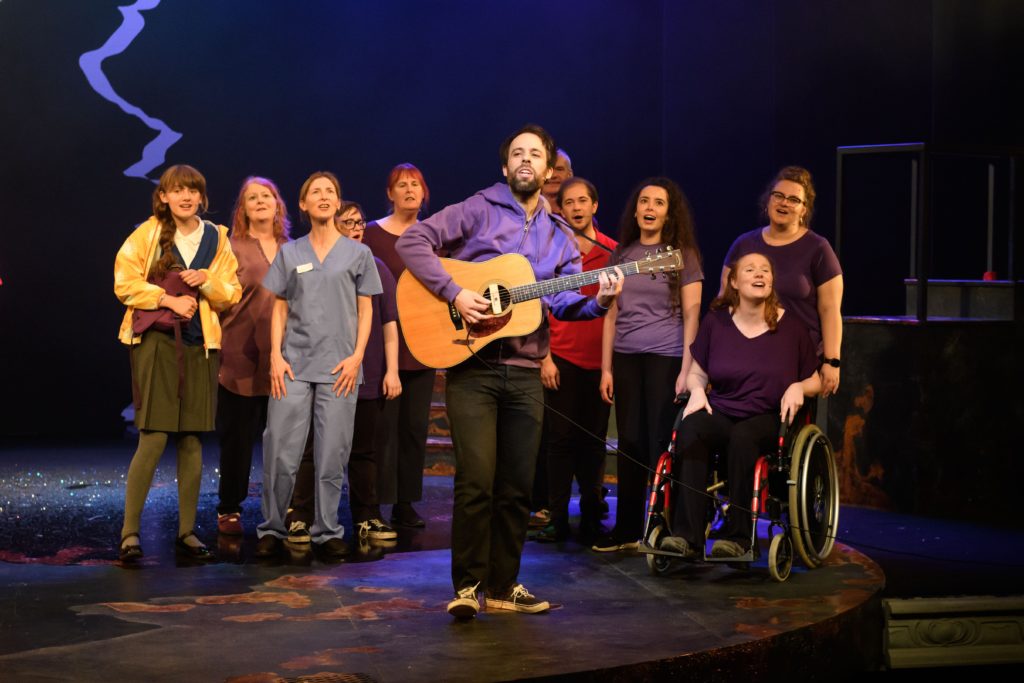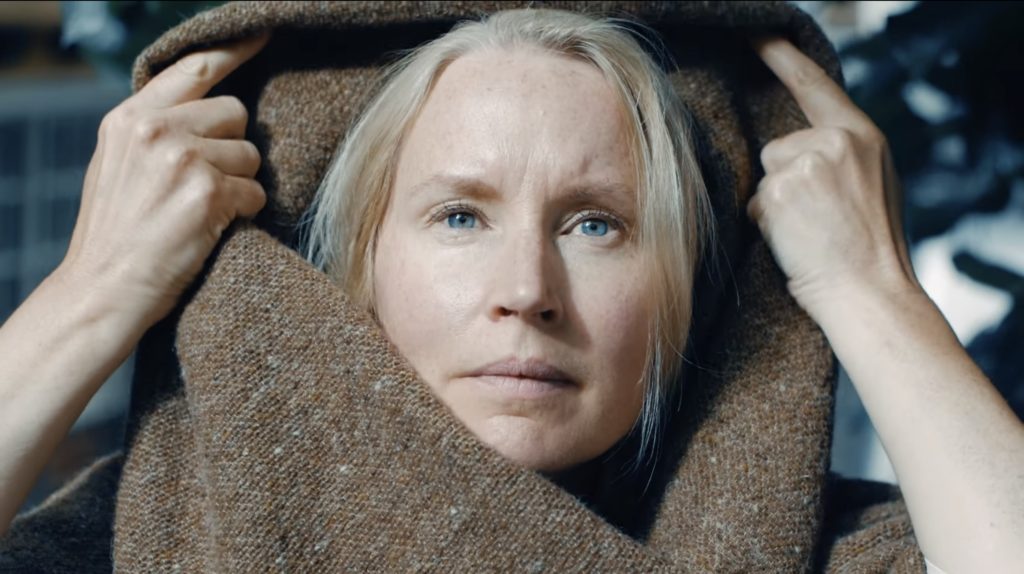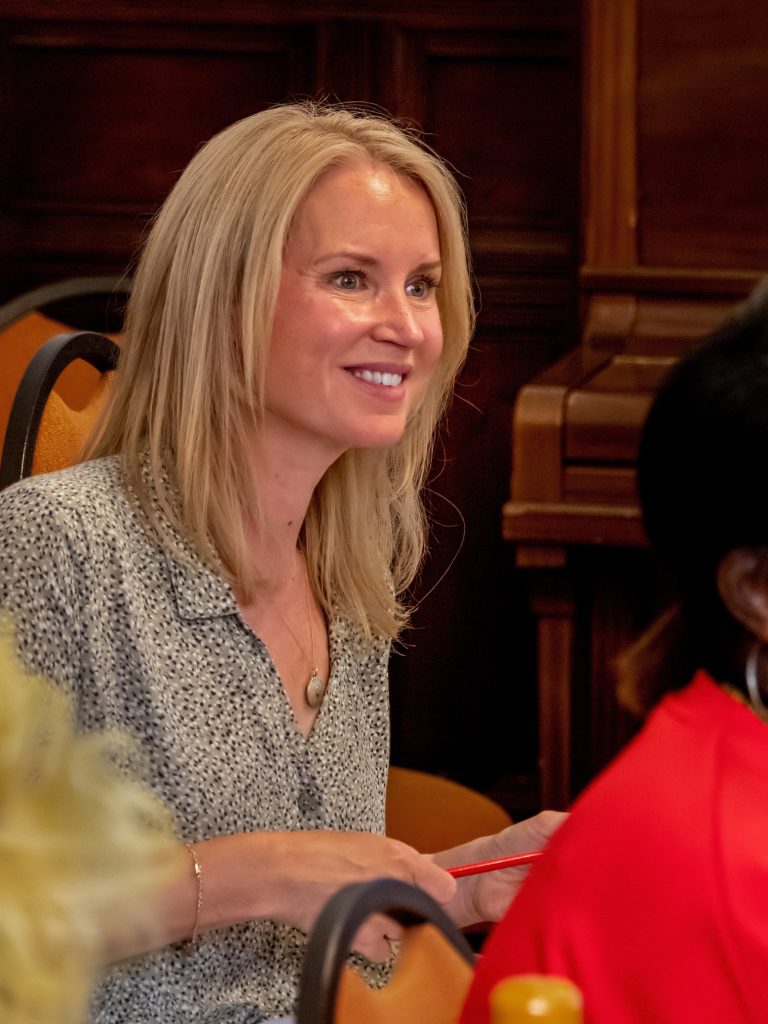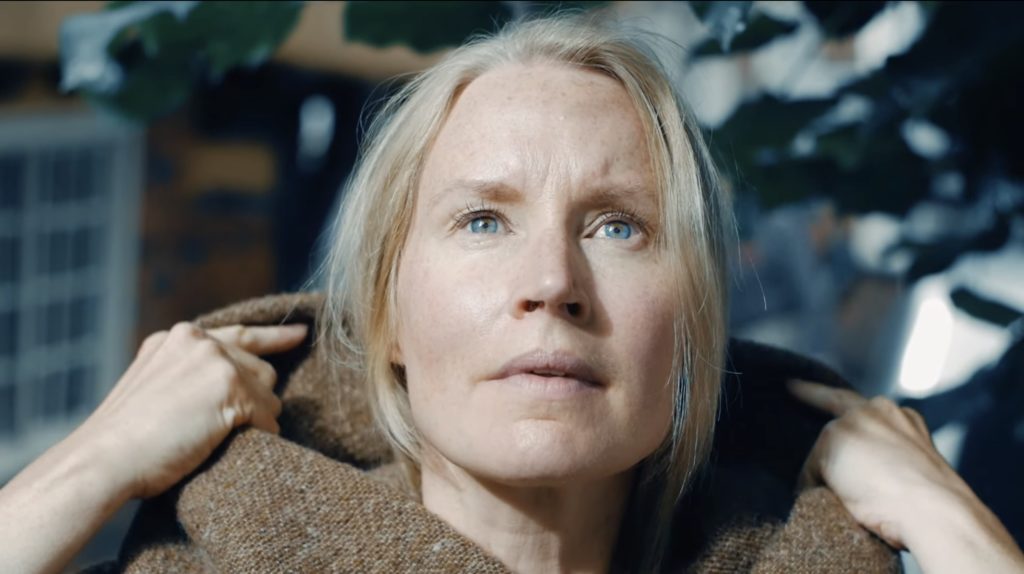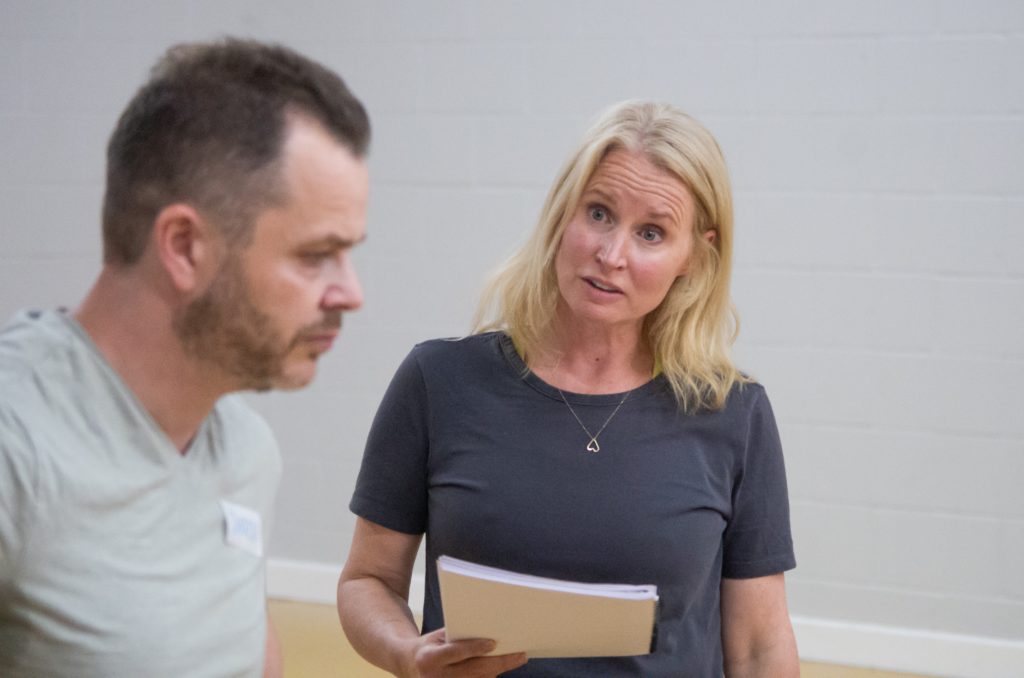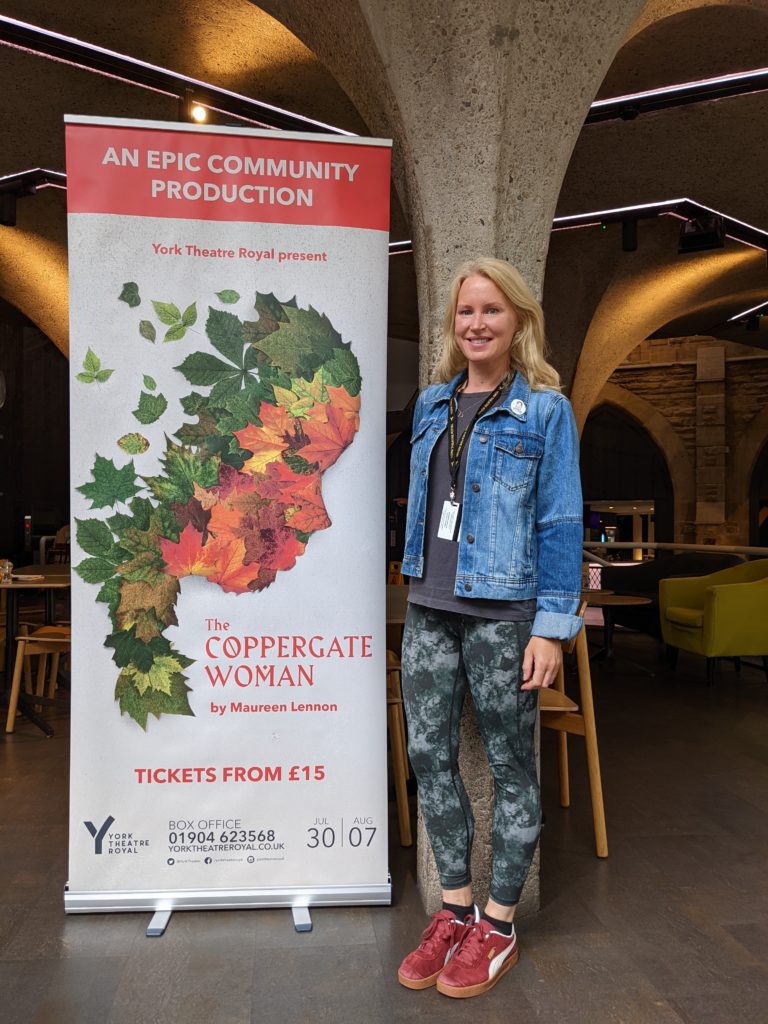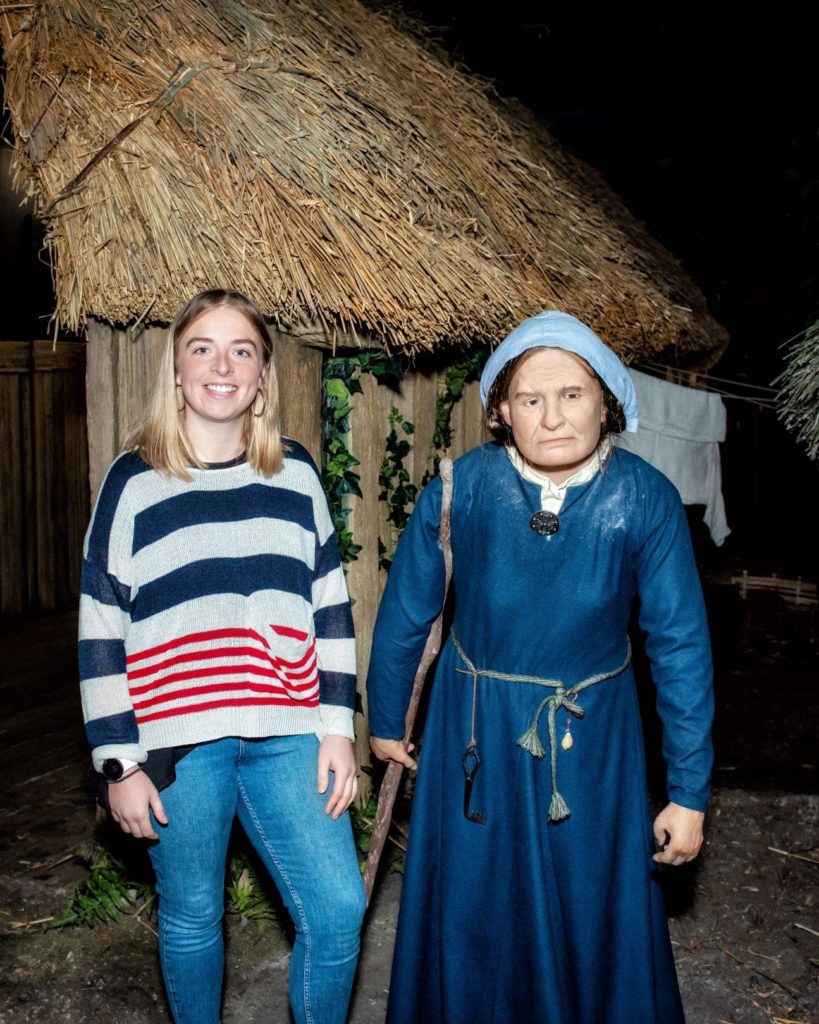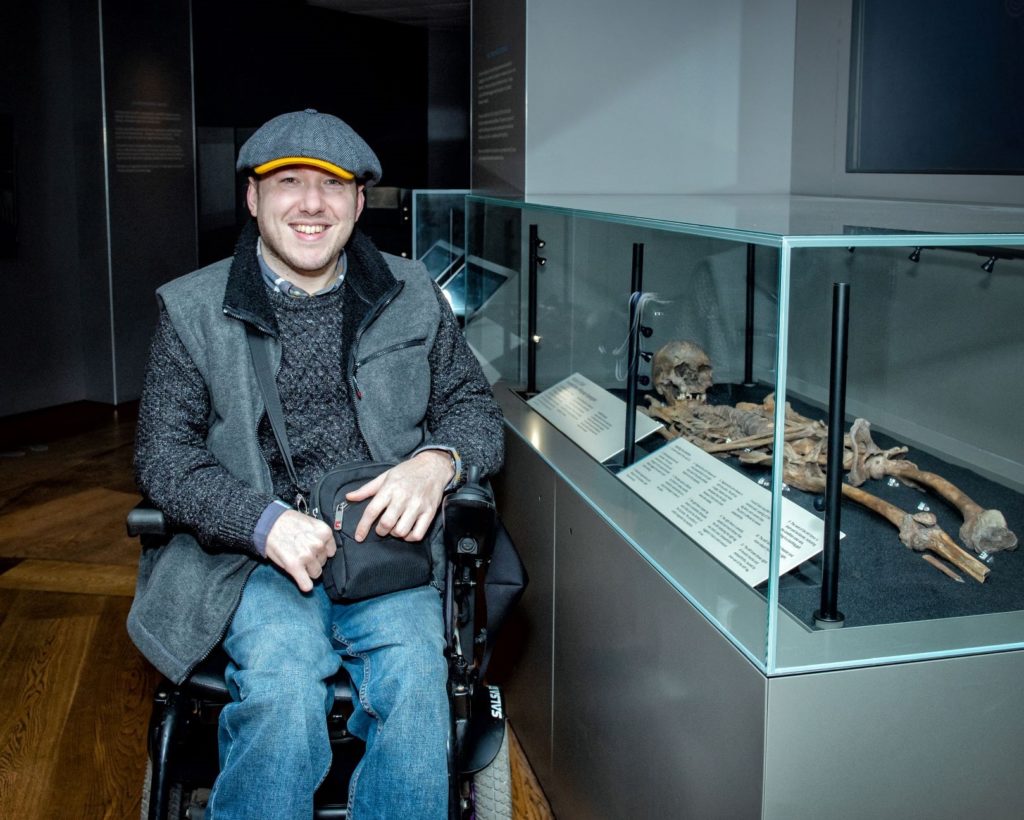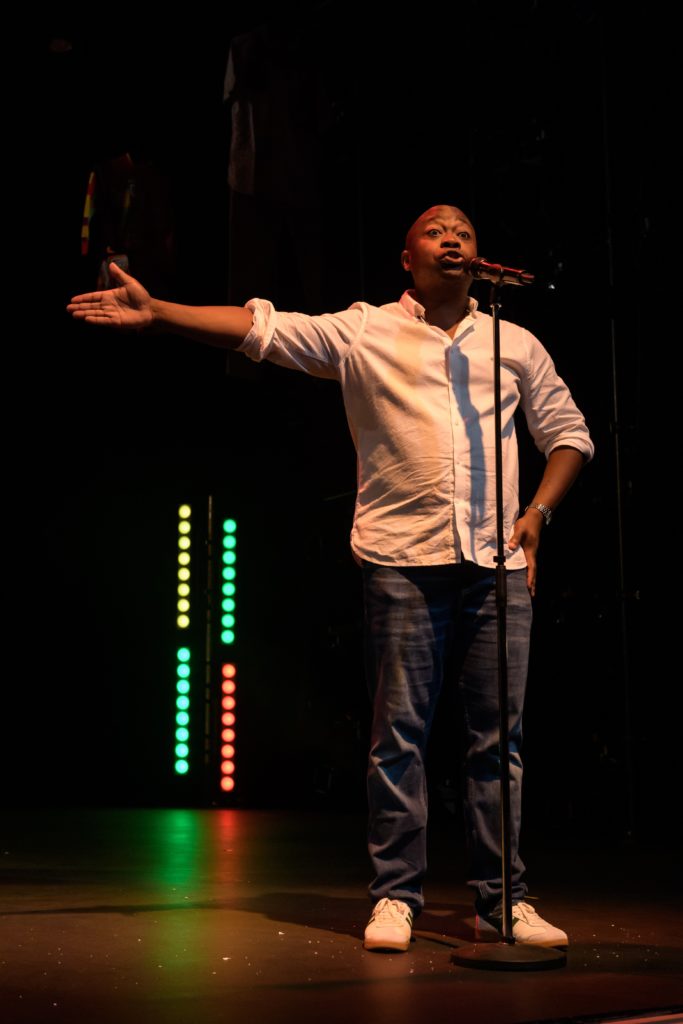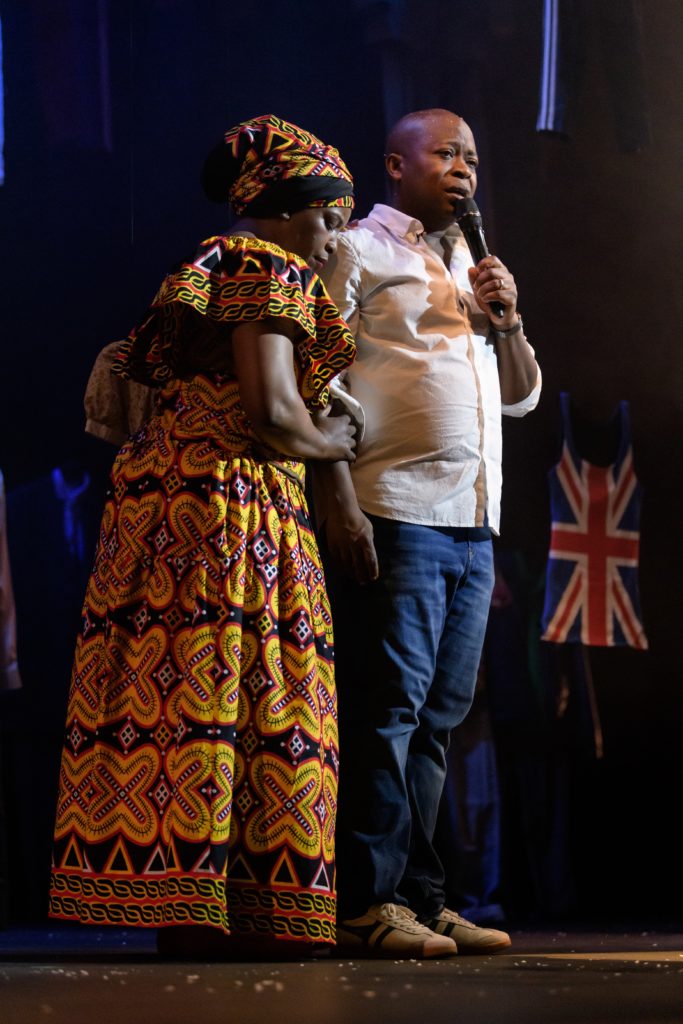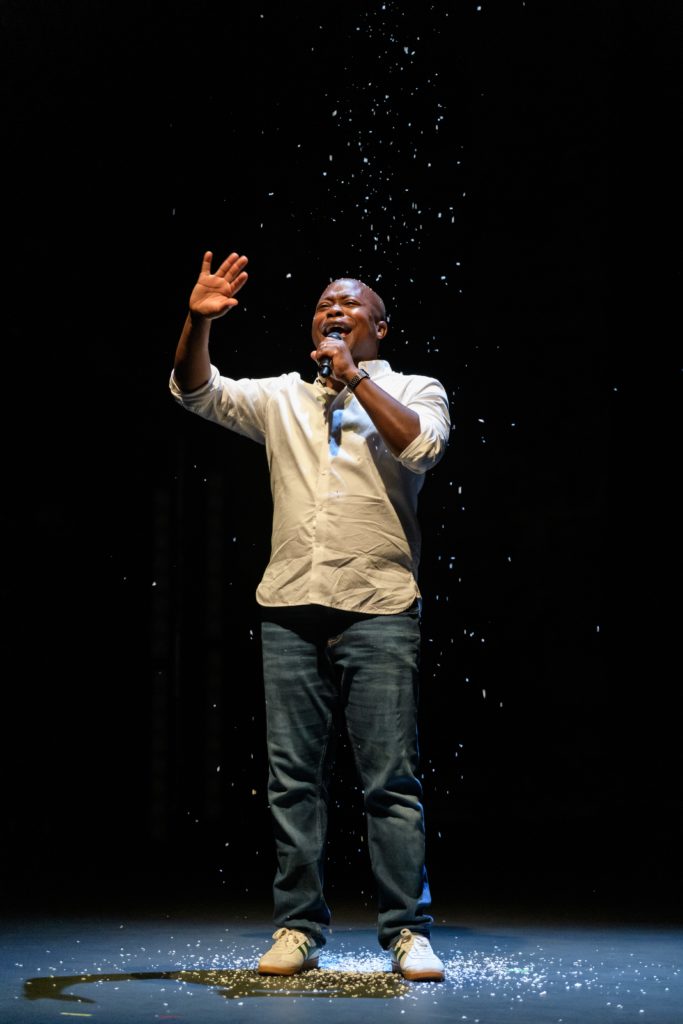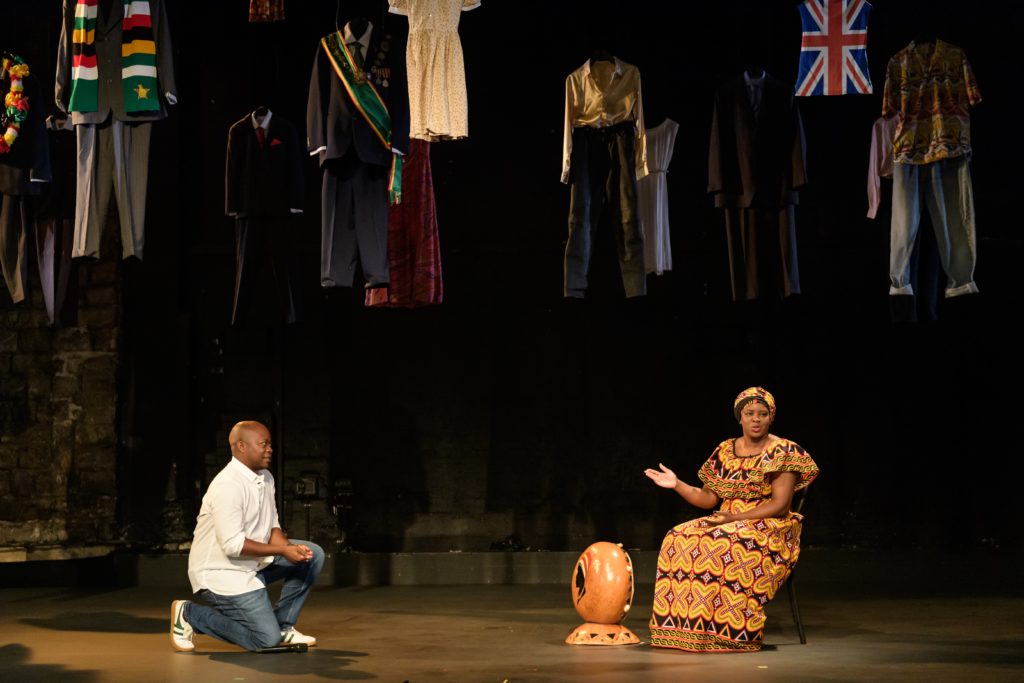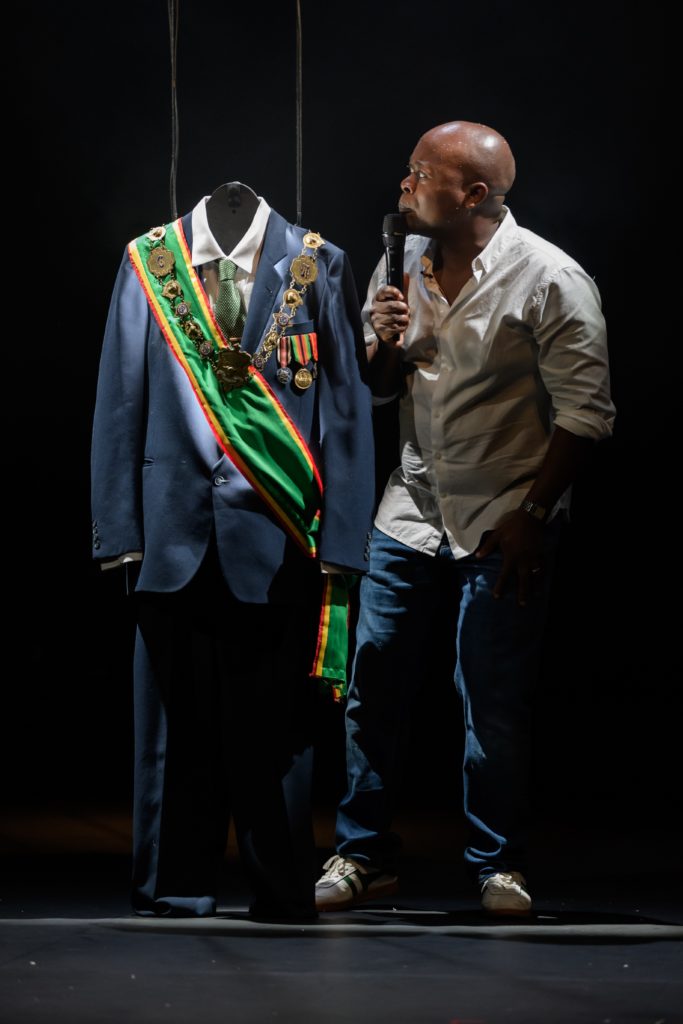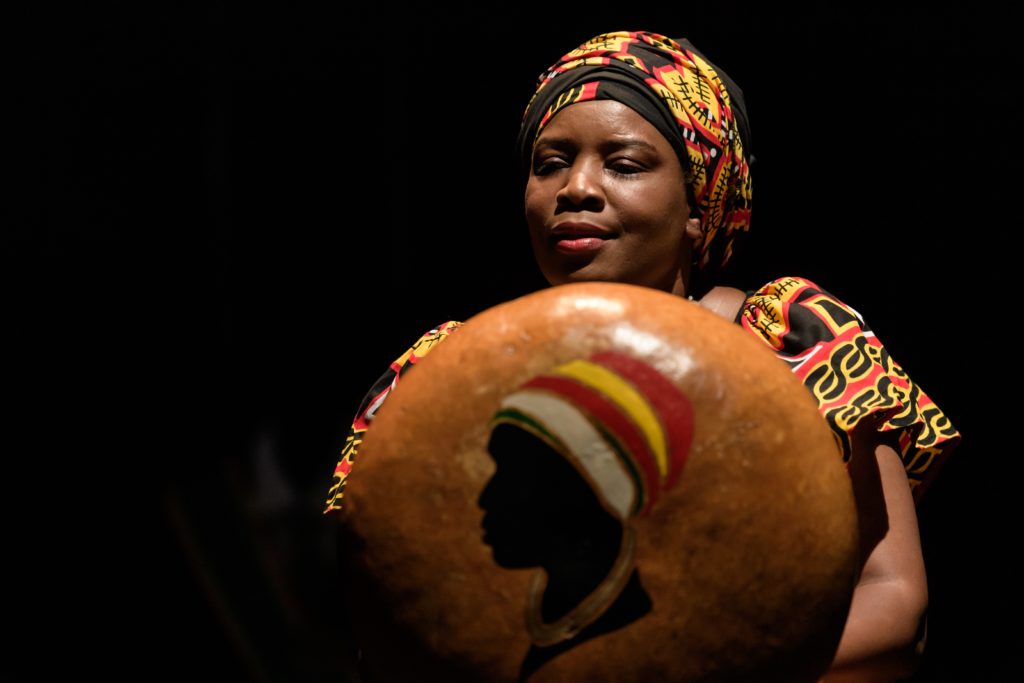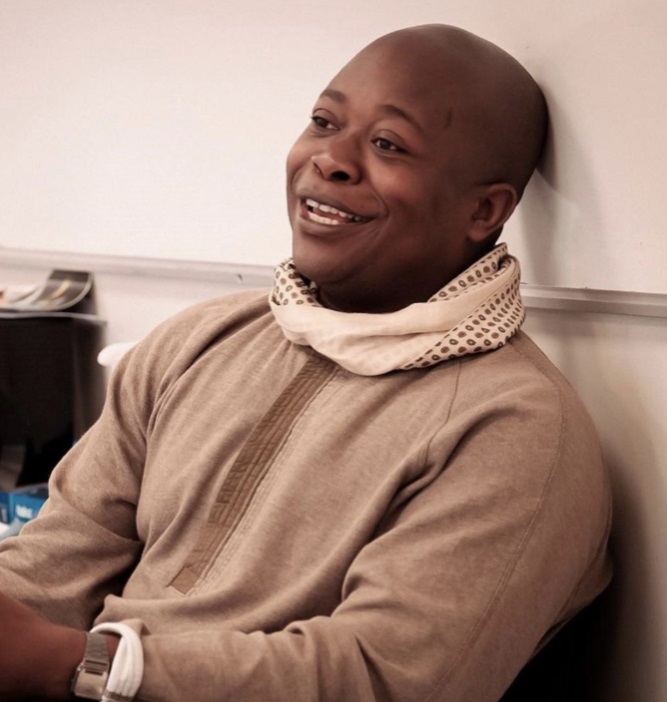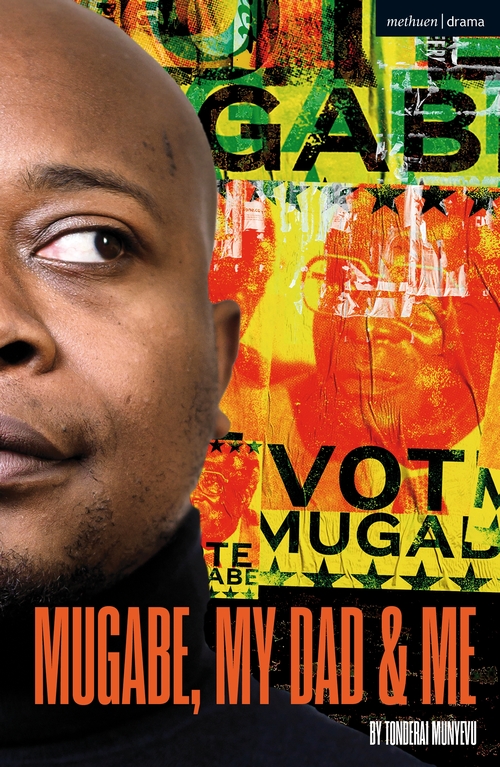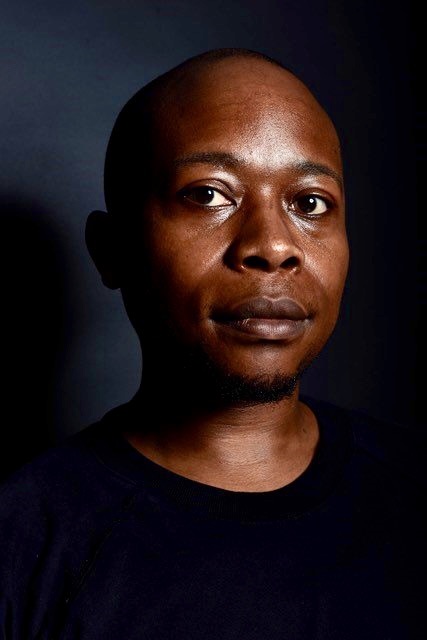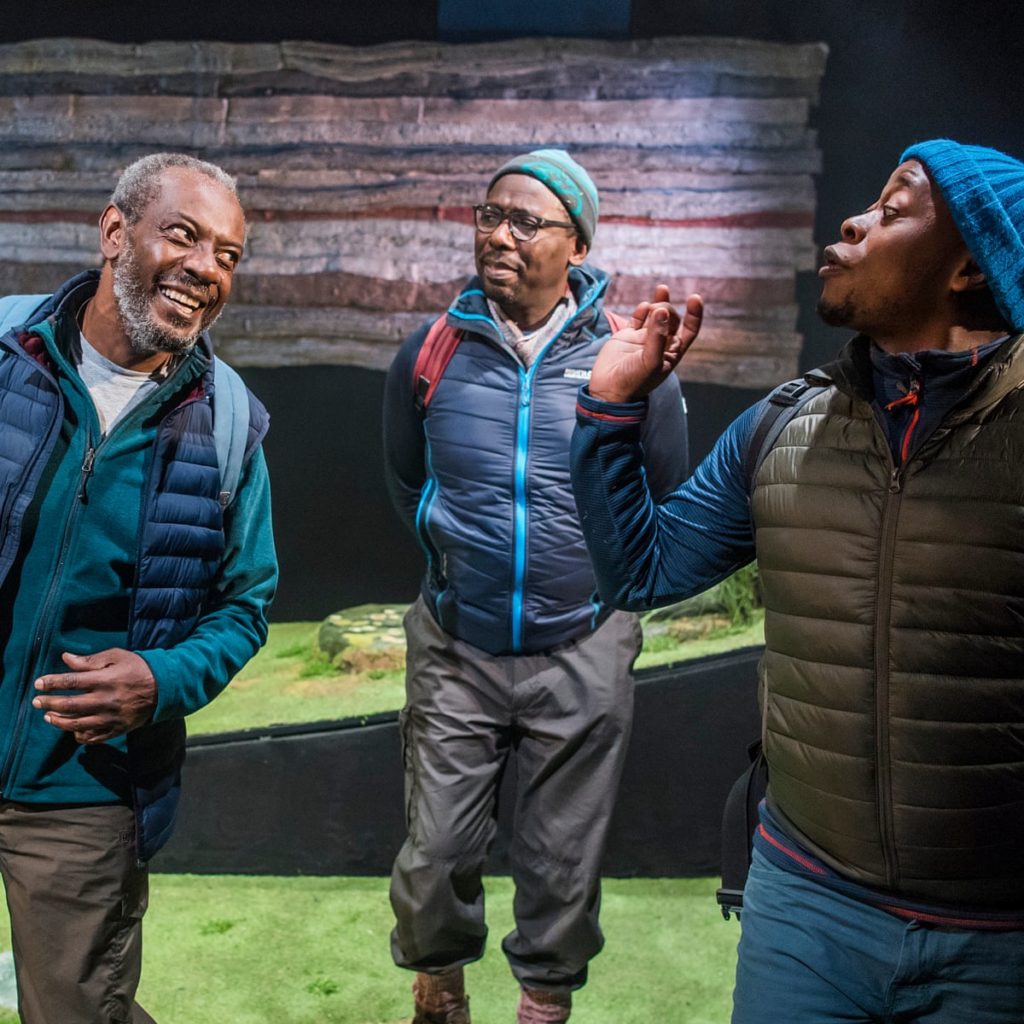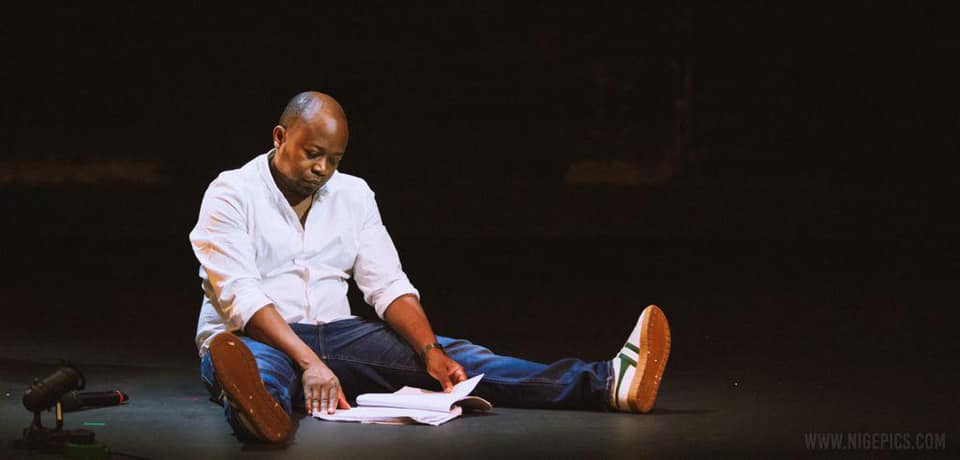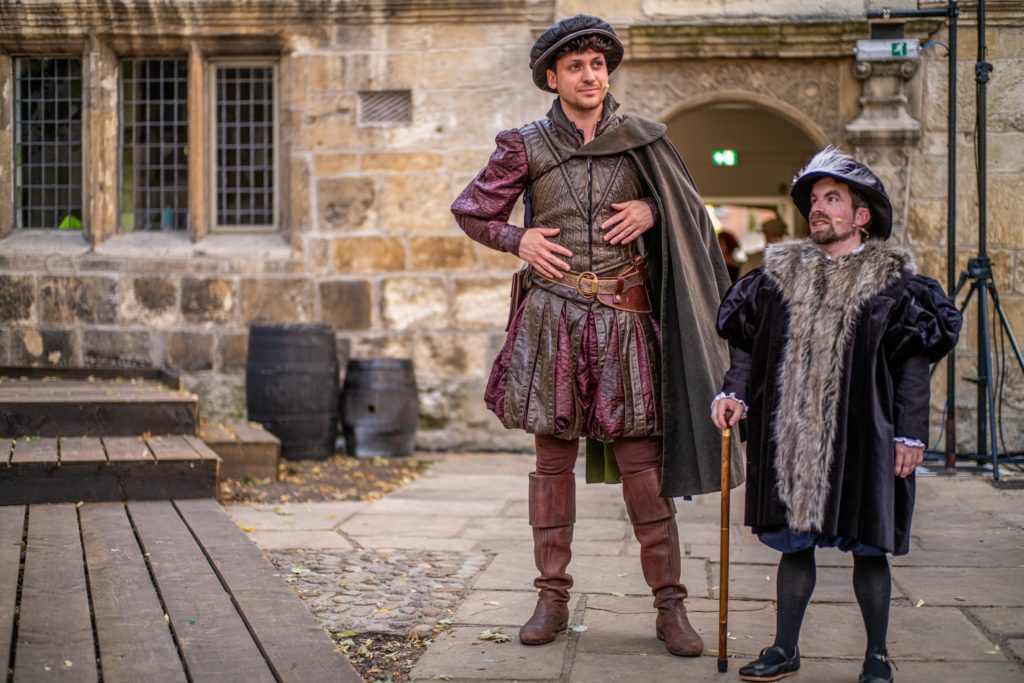
FIRST the bad news. Not the July weather forecast, but the Sold Out notices denoting you are too late to book for the rest of the fortnight run of this summer’s York Theatre Royal community play.
Such has been the demand to see Mike Kenny’s adaptation of C J Sansom’s Tudor-set thriller in the very place where the biggest chunk of this best-selling sleuth story is set: King’s Manor, so re-named from the Abbot’s House to mark Henry VIII’s visit to the city with his latest queen du jour, Catherine Howard.
Staged in partnership with the University of York on its city campus, Sovereign plays out in the courtyard, the one with the tree at its epicentre and steps that add both height and dramatic statement to co-directors Juliet Forster, John R Wilkinson and Mingyu Lin’s grand production.
Aside from the front row, each capacity house of 240 is protected by a canopy from the rain, leaving the cast of 100 to battle with the elements, as they did last night and rather more so amid Saturday’s heavy downpours.
Kenny, a veteran of York outdoor productions from 2012’s The York Mysteries in the Museum Gardens and Blood + Chocolate on the city streets, even has Sovereign’s Greek chorus – or Women of York Chorus, to be precise – defy the rain with a knowing Yorkshire shrug. They will comment on a woman’s lot in Henry’s world with feminist ire too, resonating with the #MeToo era.
In our age of “levelling up”, but not levelling truthfully with the people, Kenny makes much of the north-south divide in Sovereign, right from the opening scene where Mark Gowland’s gouty, vainglorious Henry makes claim to godlike status, to the chagrin of Rosy Rowley’s no-nonsense God on a York Mystery Plays wagon on the other side of the stage.
As the play unfolds, towards its close after two hours and 45 minutes, Kenny makes a series of bullet pronouncements on the division between Protestant South and Papist North. Not only did Henry take land from Yorkshire landowners and dissolve the monasteries of God’s Own Country, but he put a stop to the Mysteries, seeing them as Catholic propaganda. History will tell you the wagons rolled on for a while longer, but then fell silent until the 1951 Festival of Britain.
Henry is a hated figure in York in Sansom’s story, as he seeks to impose the Royal Progress of 1541. The “Southerans” are unwelcome, not only “Fat Harry”, but also disabled lawyer Matthew Shardlake (Fergus Rattigan) and his Jack-the-lad Jewish sidekick, Jack Barak (University of York history and politics alumnus Sam Thorpe-Spinks).
Shardlake is mocked as a bottled spider by Henry, a crouchback by others; Joe Hooper’s Fulke Radwinter takes against Barak and Shardlake, taunting Barak about the events of March 16 1190, the Massacre of the Jews at Clifford’s Tower.
At Clifford’s Tower in Sovereign the body of Robert Aske, convicted of high treason by Henry, is still hanging five years after his execution in 1537. Plenty more bodies will pile up by the play’s end, more in the tradition of Jacobean tragedies.
Thorpe-Spinks has called Barak “Dr Watson to Shardlake’s Holmes”, but he rather more reminds you of Dennis Waterman’s Terry McCann in Minder with his feisty willingness to challenge all comers and eye for the ladies. Or one lady in particular, Livy Potter’s resourceful Tamasin Reedbourne, as Potter continues her run of winning performances in recent months.
Rattigan makes for a wily and worldly Shardlake, but lawyers have a bad name in this world – another dig delivered with comic timing in Kenny’s canny script – and so he becomes a more complex character as Sansom’s stinging story progresses. Not a conventional hero, not morally straight-backed, but remorseless as a Poirot. By comparison, Thorpe-Spinks’ lovable Barak is a little under-used, but then he is preoccupied with Potter’s Tamasin.
Shardlake and Barak have been sent north to keep an eye on political prisoner Edward Broderick (Nick Naidu-Bock, haunted and haunting), but the murder of a York glazier finds the plot thickening like a bechamel sauce.
So much is bubbling away in Sansom’s story: Matthew Page’s Giles Wrenne earnestly seeking to challenge Henry’s right to the throne; the Conspiracy at work; Scarlett Rowley’s insouciant Queen Catherine playing away from home with Josh Davies’s former beau Thomas Culpeper (or Culpepper in this version); Maurice Crichton’s curmudgeonly Yorkshireman Maleverer in peak scene-stealing form.
Not only does this community play have a chorus but an even larger York Ensemble for crowd scenes and dance numbers steered by movement director Hayley Del Harrison, and a King’s Ensemble for more north-south shenanigans.
The directing triumvirate achieves a balance between scenes on a physical grand scale and ones of more intimacy of a psychological nature. As for spectacle, look out for dramatic entrances by horses and a bear, courtesy of Animated Objects’ animal heads, and a cock-fighting scene too.
Dawn Allsopp’s set design works in happy union with King’s Manor, Hazel Fall’s costume designs are a Tudor delight and Craig Kilmartin’s lighting design plays to daylight’s progress into night. Out of view, to the side, apart from musical director Madeleine Hudson’s outstretched arms, is the choir, but their contribution is vital, commenting in song on what is ensuing through Dominic Sales’s wonderful compositions.
Yes, Sovereign could be shorter, and in a future staging it probably would be, but Mike Kenny has worked his Midas touch once more. York Theatre Royal is ahead of the game too: a television series of Sansom’s stories is on its way.
York giving Fat Harry the proverbial two fingers will live long in the memory.
Box office for returns only: 01904 623568 or yorktheatreroyal.co.uk.

